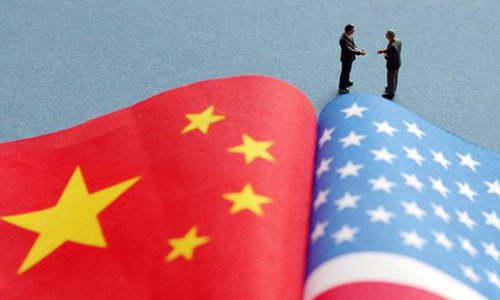China, US shouldn’t rush phase one deal
Source:Global Times Published: 2020/1/6 23:54:26

Photo: VCG
Since Chinese and US officials agreed on the text of a phase one trade agreement, there has been much speculation about when the widely hailed deal could be signed. US President Donald Trump has said that the signing could come on January 15. The South China Morning Post reported on Sunday that a Chinese delegation will travel to Washington on January 13 to sign the deal, after it misreported that a trip would taken place on Saturday.Given the damage the long-running trade war has inflicted on the world economy, it is completely understandable that many around the world - from officials to investors - hope Beijing and Washington could sign the phase one agreement as soon as possible. It is also apparent that many in China, including officials, also want to see a deal signed sooner rather than later.
However, as trade negotiators continue to finalize the agreement, a speedy signing is not of the essence, but the actual content of the deal and its implementation are.
Given the potential significance of the phase one deal for ending the costly trade tussle and even for the future of the world's most consequential bilateral relationship, it is imperative for both sides to get the deal done right, rather than in a rush.
From discrepancies in official statements on both sides, it is apparent that there are still some final details to be worked out. For example, US officials have unilaterally disclosed information, such as the amount of China's purchases of US products, and the date and location for the signing ceremony.
Chinese officials have not publicly confirmed any of this information.
Though the phase one deal is in the final stage, it is also important to know that this is a delicate phase, particularly given the increasingly toxic political environment in Washington over relations with China. At this stage, there are still many things that could go wrong. After all, the US backtracked in the trade talks before.
That is not to say that the phase one deal is in jeopardy, but it should serve as a reminder that both sides need to treat the process seriously and keep a single-minded focus on putting the final touches on the agreement and making sure that the deal will be implemented well.
Rushing through the process to make short-term political points for a partisan audience would be not only short-sighted - it would also be dangerous to the future of the trade negotiations to address the remaining issues in the dispute, as well as the broad bilateral relationship.
The phase one agreement might be limited in scope, but if properly executed, it could be a great start for both sides to continue de-escalating tensions and even reengage in meaningful discussion to reset the relationship between the two vastly different economies.
Conversely, failure of the phase one deal could plunge the most consequential relationship into another conflict and the world economy into further disarray. It is hoped that both sides will work to avoid that.
Posted in: GT VOICE,CHINA-US